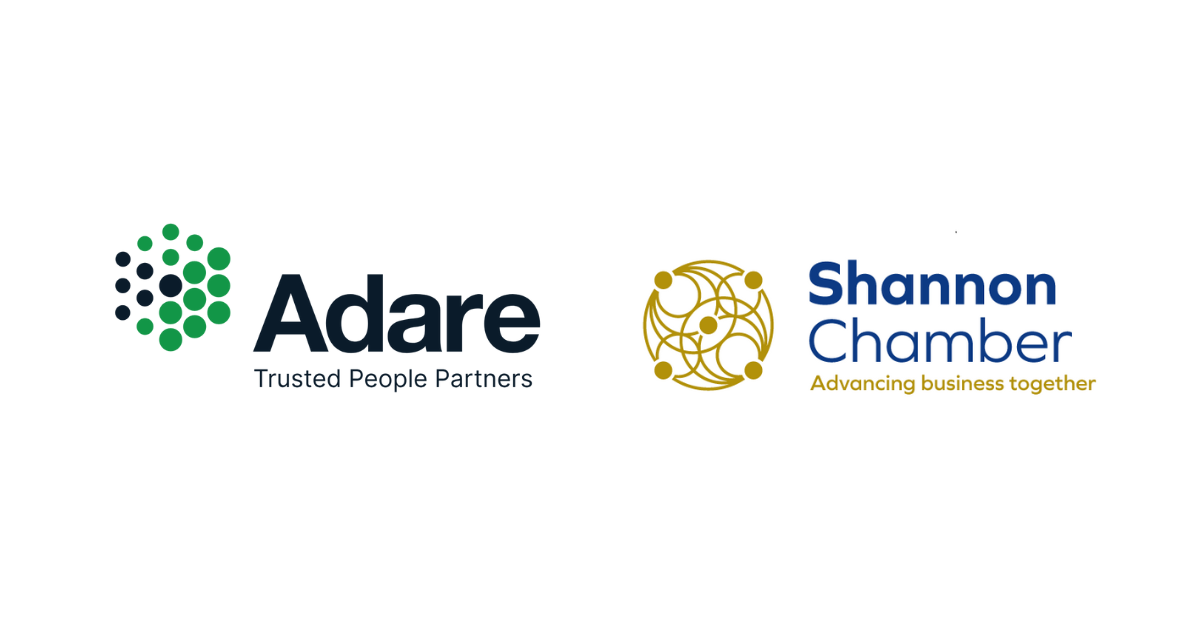
HR Planning for 2025: Key Trends and Strategic Priorities
One of the key HR priorities to emerge from Adare’s most recent HR Barometer Series 8.2 was Employee engagement and experience. Persistently tight labour market conditions go a long way to explaining HR’s recent focus on Employee engagement. With the unemployment rate expected to hover around 4% into 2025, HR teams look set to continue focusing on Employee engagement strategies into next year to drive better recruitment and retention metrics. Against this backdrop, there are also major compliance changes taking place in 2025. The first contributions under the pension auto-enrolment scheme will be collected in September 2025, gender pay gap reporting obligations will extend to Organisations with 50 Employees or more and wider pay transparency measures that affect recruitment processes and employment contracts will move a year closer. To help HR professionals prepare for 2025, this article will focus on key trends that HR professionals need to prepare for in the year ahead.
Employee Engagement – Work with Purpose
Why It Matters: Engaged Employees are more committed to their Organisations. Employees who engage with an Organisation’s mission, values and objectives tend to perform better and are less likely to seek alternative roles with competitors. In tight labour market conditions, Organisations with high engagement levels therefore enjoy a competitive advantage over their rivals.
HR Strategy: To boost Employee engagement, Organisations should consider how they might cultivate a sense of purpose and better align work with broader organisational values. As the workforce increasingly values mission-driven work, Organisations that provide Employees with an appropriate amount of autonomy and highlight the impact of Employee workplace contributions are more likely to have an engaged workforce that is less susceptible to approaches from competitors.
Working Practices – One Size Fits All Approach Losing Relevance
Why it Matters: Employee expectations around workplace flexibility are at an all-time high. A key Employee priority is striking the right balance between work-life and personal life. The challenge for HR departments remains creating a workplace culture that supports flexibility, autonomy, and empowerment while maintaining productivity and overall Organisational performance.
HR Strategy: As more and more reports suggest that Organisations are going to ramp up return to office policies next year, it is vital that HR engages with Employees to see how an increase in office time will impact their work and personal lives. Organisations that allow Employees to maximise the time they devote to their personal lives may enjoy a competitive advantage in a tight labour market. Finding out what matters most to Employees and providing targeted benefits and targeted flexible work options is more likely to earn loyalty across the workforce.
Preparing for New Compliance Requirements
Why It Matters: As employment laws evolve, HR professionals need to stay informed to ensure compliance and avoid legal risks. After a busy recent period of employment law developments, 2025 looks set to be no different. Next year will see the first contributions made under the auto-
enrolment savings scheme, the widening of the obligation to publish a gender pay gap report to Organisations with 50 Employees or more, an increase in minimum wage as well as further pay transparency compliance and possible changes to statutory sick pay (subject to review of status quo).
HR Strategy: HR professionals must ensure to stay up to date with regulatory changes that may impact the workforce. Preparations for auto-enrolment and gender pay gap reporting in particular are likely to require significant stakeholder consultation. HR departments should begin scheduling time to meet with payroll and pension advisors in good time to ensure the relevant actions are taken well in advance of the June snapshot date for gender pay gap reporting and the September date for pension auto-enrolment.
The Multi-Generational Workforce
Why It Matters: With as many as five generations working in certain Organisations, HR professionals must find ways to meet a wide range of Employee expectations, values, and working styles. While managing this level of age diversity can be challenging, it also represents an opportunity for Organisations to tap into a wide range of skills and experiences. The ongoing digitisation of work is also likely to influence different generations of Employee in different ways.
HR Strategy: Different generations have different expectations regarding key workplace matters like career development, work-life balance, and benefits packages. HR will need to communicate with Employees to establish their priorities and develop policies that meet the varied needs of a multi-generational workforce. HR will also be instrumental in fostering knowledge transfer and collaboration between younger and older Employees. Relevant initiatives could include facilitating workshops that encourage mutual learning and respect across generations. As discussed above, ways of working and benefits packages may also need to be more flexible and tailored to the needs of different generations. Younger generations may prioritise career development, while older generations may value retirement planning and pension benefits. HR must therefore design benefits and policies that are inclusive and address a variety of needs.
Monitoring Progress in 2025
HR professionals will continue to play a vital role in fast moving developments in the world of work in 2025. The pace of change is challenging but determining the best path for an Organisation will continue to involve a combination of internal self-examination and external assessment of how industry competitors are responding. Data-driven decision-making will also help to inform HR decisions around Employee performance, engagement, and overall organisational health. In an increasingly data-driven world, HR teams must continue to monitor key metrics around Employee engagement, Employee satisfaction, and productivity to ensure that HR strategies for the year ahead are delivering anticipated results.
More about HR partnership programme HERE
Adare is a team of expert-led Employment Law, Industrial Relations and best practice Human Resource Management consultants. If your Organisation needs advice, support, or guidance about compliance requirements or any HR issues, please contact Adare by calling (01) 561 3594 or emailing info@adarehrm.ie to learn what services are available to support your business
